Description
What is an Embedded Spring Spiral Antenna 433.92 MHz For 433MHz Modules?
The Embedded Spring Spiral Antenna 433.92 MHz For 433MHz Modules CTRF-ANTENNA-SP-0433-3504 coil antenna comes with a 3 dBi gain 433MHz spiral antenna manufactured by C&T RF Antennas Inc for 433Mhz RF Remote Switch Wireless Control One Channel Transmitter and Receiver.
The CTRF-ANTENNA-SP-0433-3504 433 MHz spiral Antenna For RF Modules is a complete, compact, low-power wireless transceiver module antenna.
This is Lora antenna spiral antenna 433MHz high gain antenna 433MHz digital wireless transmission for 433MHz modules spring spiral copper antenna.
C&T RF Antennas Inc provides internal & external antennas with antenna radio frequencies such as NFC, 169MHz, 230MHz, 315MHz, 433MHz, 868MHz, 915MHz, VHF&UHF, Lora, NB-IoT, ADS-B, GSM, GNSS, GPRS, 1.2 GHz, 1.4 GHz, 1.8 GHz, Wi-Fi 2.4 GHz, 5.8 GHz, Cellular 2G, 3G, 3.5 GHz, 4G LTE, GPS, 5G NR, 6G, etc.
C&T RF Antennas Inc. provides RF antennae with Omni & Directional antenna types such as Dipole Antennas, Whip Antennas, Marine Antennas, Router Antennas, MIMO Antennas, Combo Antennas, PCB Antennas, FPC Antennas, Spring Antennas, Magnetic Antennas, Sector Antennas, Yagi Antennas, and Accessories, etc, for IoT & M2M industries.
Contact us for more details on the Embedded Spring Spiral Antenna 433.92 MHz For 433MHz Modules such as the 433 MHz spiral antenna datasheet, 433 MHz spiral antenna pricing, and 433 MHz spiral antenna.
Or other 433 MHz spiral antenna styles.
Spiral Antenna 433.92 MHz Specifications:
Spiral Antenna 433.92 MHz Electrical Specifications |
|
| RF Antenna Type | Embedded Spring Antenna |
| Model | CTRF-ANTENNA-SP-0433-3504 |
| Frequency | 433 MHz |
| Gain | 3dBi |
| VSWR | ≤2.0 |
| Impedance | 50 Ω |
| Polarization | Vertical Polarization |
| Lightning Protection | DC-Ground |
Spiral Antenna 433.92 MHz Mechanical Specifications |
|
| Dimension | 35*4.2mm |
| Weight | Approx. 4g |
| Material | Copper Wire |
| Operation Temperature | – 40 ˚C ~ + 65 ˚C |
| Storage Temperature | – 40 ˚C ~ + 70 ˚C |
| Finished Antenna Color | Copper |
| Antenna Design | Internal Antenna |
| Mounting | Soldered |
| SafetyEmission and other | RoHS Compliant |
| Applications | Public Safety/LMR/P25/TETRA, ISM/SCADA/Utilities, RFID, IoT/NB-IoT/LoRa, etc. |
Wireless 433MHz transmission communication module
With the rapid development of wireless communication technology and the continuous evolution of specifications in the past decade, a variety of different wireless technologies, whether GSM, GPS, WLAN (such as Wi-Fi), Bluetooth, etc., have gradually emerged and become popular in daily life. in.
The wireless communication technology itself has been extensive and sophisticated, and when it is introduced into various electronic devices and applications, electromagnetic interference (EMI) and electromagnetic compatibility (EMC) issues must be considered to prevent related functions from being interfered with to cause signal degradation, Affect its normal operation.
However, various parts of the world have legislated and established relevant electromagnetic regulations, focusing on the restrictions on electromagnetic radiation and RF (Radio Frequency).
In the face of the possibility of mutual interference between different communication modules, it is difficult to have a Set fixed standard to prevent or solve related problems, which has therefore become the most important point for product developers to overcome.
In addition, coupled with the recent boom in portable devices and the diversification of communication functions, these related communication modules and antennas must be designed to be lighter, thinner, shorter, and smaller in size to meet the needs of mobile applications. It makes it more difficult to optimize the design of the product.
To build more different wireless modules and antennas in an extremely small and streamlined space, these components will inevitably cause noise interference with each other and affect its transmission performance, because it is often observed that the transmission distance becomes shorter. , Transmission rate reduction, etc. are not conducive to product communication performance.
With the widespread use of wireless communications, wireless channels have become very crowded, channel resources are very tight, and interference is numerous and serious.
Since spread spectrum communication technology has many advantages to overcome these problems and can provide higher security technology.
Therefore, the wireless 433MHZ frequency band is planned and the use of this frequency band is approved for spread spectrum communication. Spread spectrum communication technology has developed rapidly and has wide applications.
The transmission characteristic of the wireless 433MHZ frequency band is that 433MHZ is an application-free transmitting and receiving frequency, which can be used directly without management.
The 433 frequency band has strong anti-interference and supports various point-to-point and point-to-multipoint wireless data communication methods.
It has a transceiver integrated and safe Isolation, installation isolation, simple use, high-cost performance, stability, and reliability, etc., as long as the transmission power is large enough, there is no problem in long-distance transmission.
In some industrial scenes, the application is harsh and difficult to wire. Wireless transmission can be used to reduce the investment of manpower and material resources. The wired method has its inherent defects, such as complicated wiring, ease of being struck by lightning, and high installation and maintenance costs.
In recent years, the rapid development of wireless communication and low-power embedded technology has given birth to wireless sensor networks, which have brought about a revolution in information perception with their low-power, low-cost, distributed, and self-organizing characteristics.
Advantages of the wireless transmission network
Enhanced lightning resistance. Traditional sensor networks rely on cables to transmit data and power, while wireless sensor network nodes use battery power to transmit data wirelessly; only the product node needs to be fixed in a suitable location during product construction, and the installation location is flexible and economical The cost of cloth.
How to enhance the signal of the 433mhz transmitting and receiving antenna?
1. The antenna needs to be impedance-matched.
2. Increase the transmission gain, but the higher the gain, the narrower the lobe.
3. Increase transmission power.
Principle of an antenna transmitting and receiving:
Using the antenna’s resonance principle is basically the principle of electromagnetic induction.
The high-frequency current that changes during transmission is converted into an electromagnetic field by the antenna for emission, and the electromagnetic wave received by the antenna during the reception is converted into a high-frequency current in the machine for processing.
Besides the Embedded Spring Spiral Antenna 433.92 MHz For 433MHz Modules, C&T RF Antennas Inc also supplies the spring antenna coil helical antenna with 315 Mhz, 433 Mhz, 868 Mhz, 915 Mhz, Wifi, GSM, etc.
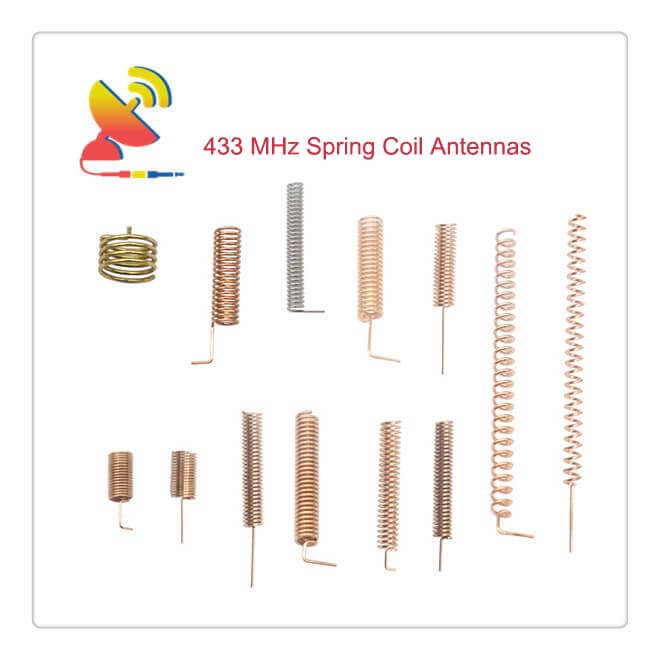
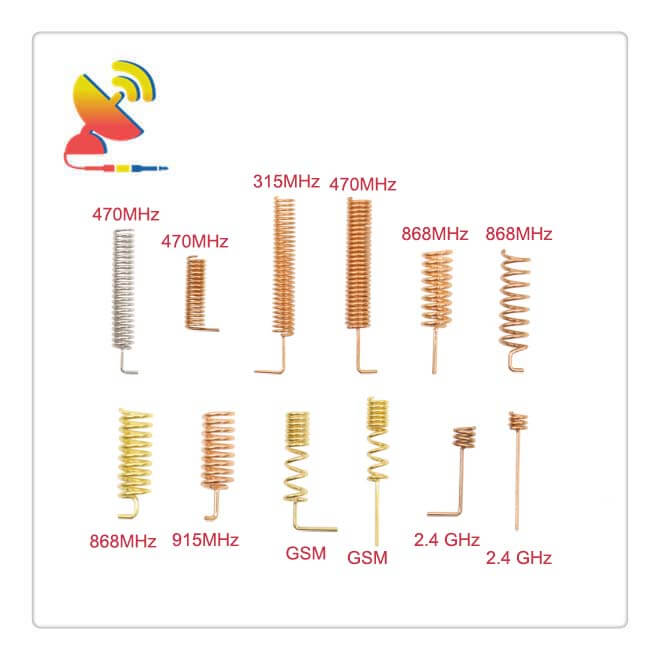
Applications of spring antenna spiral antenna 433.92 MHz helical copper antenna
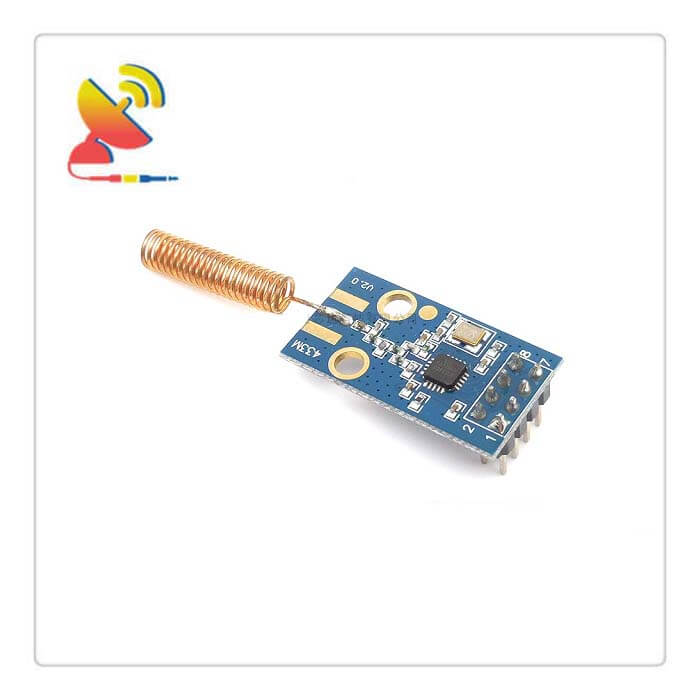
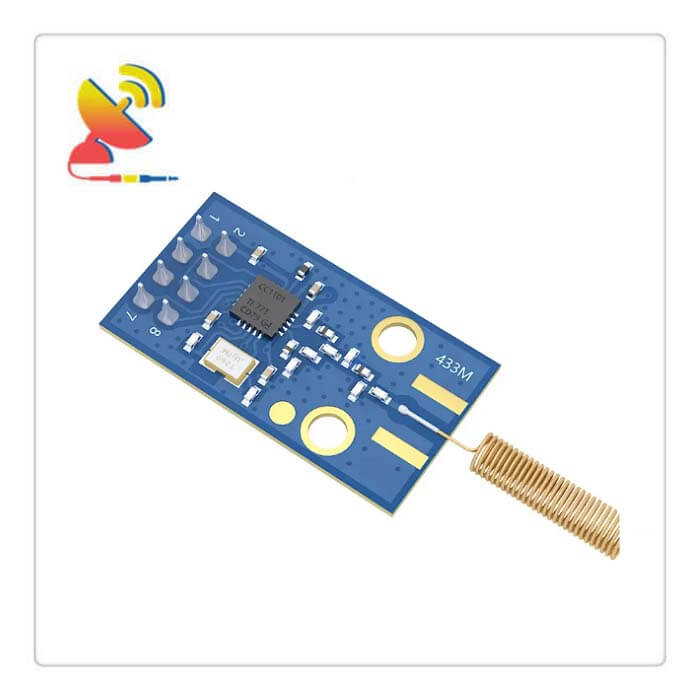
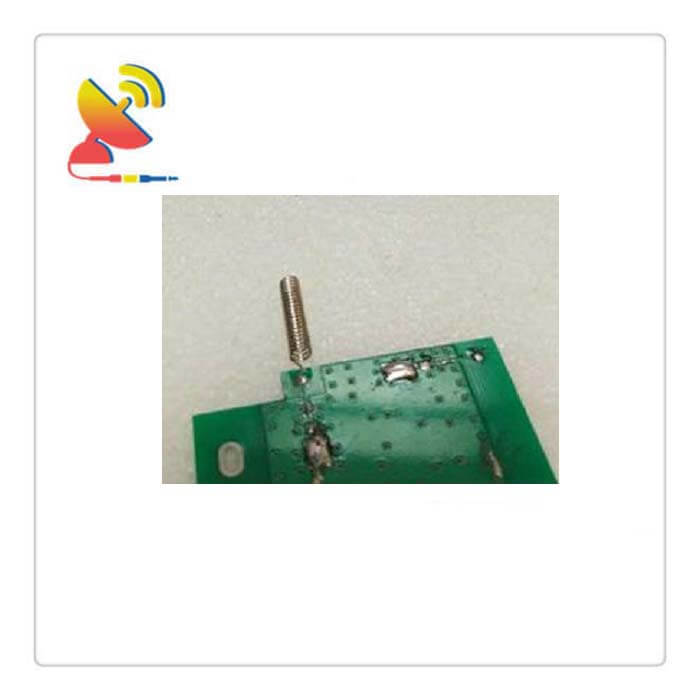
Embedded Spring Spiral Antenna 433.92 MHz For 433MHz Modules Video

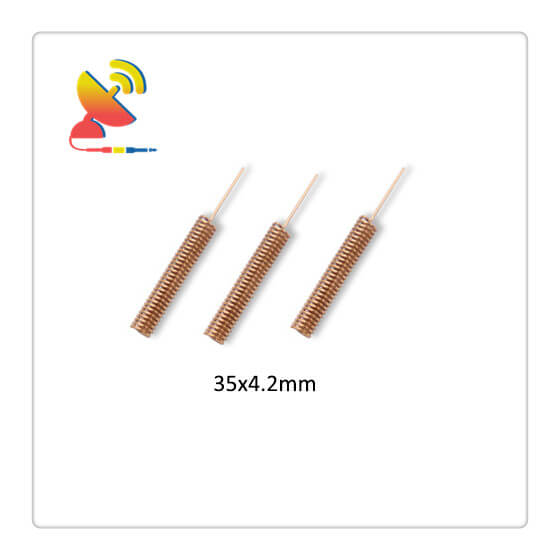
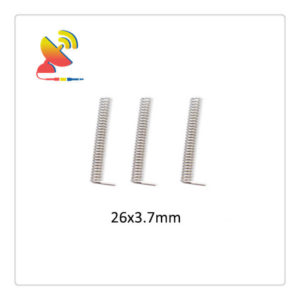
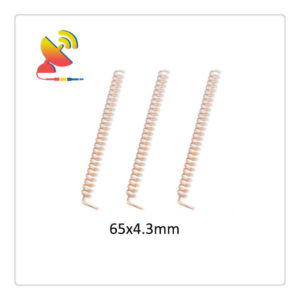
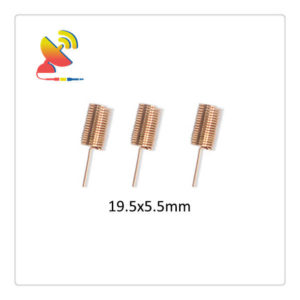
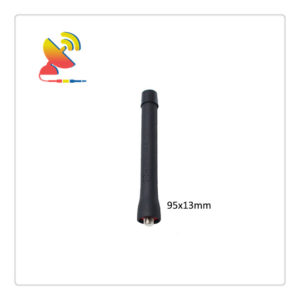
Reviews
There are no reviews yet.